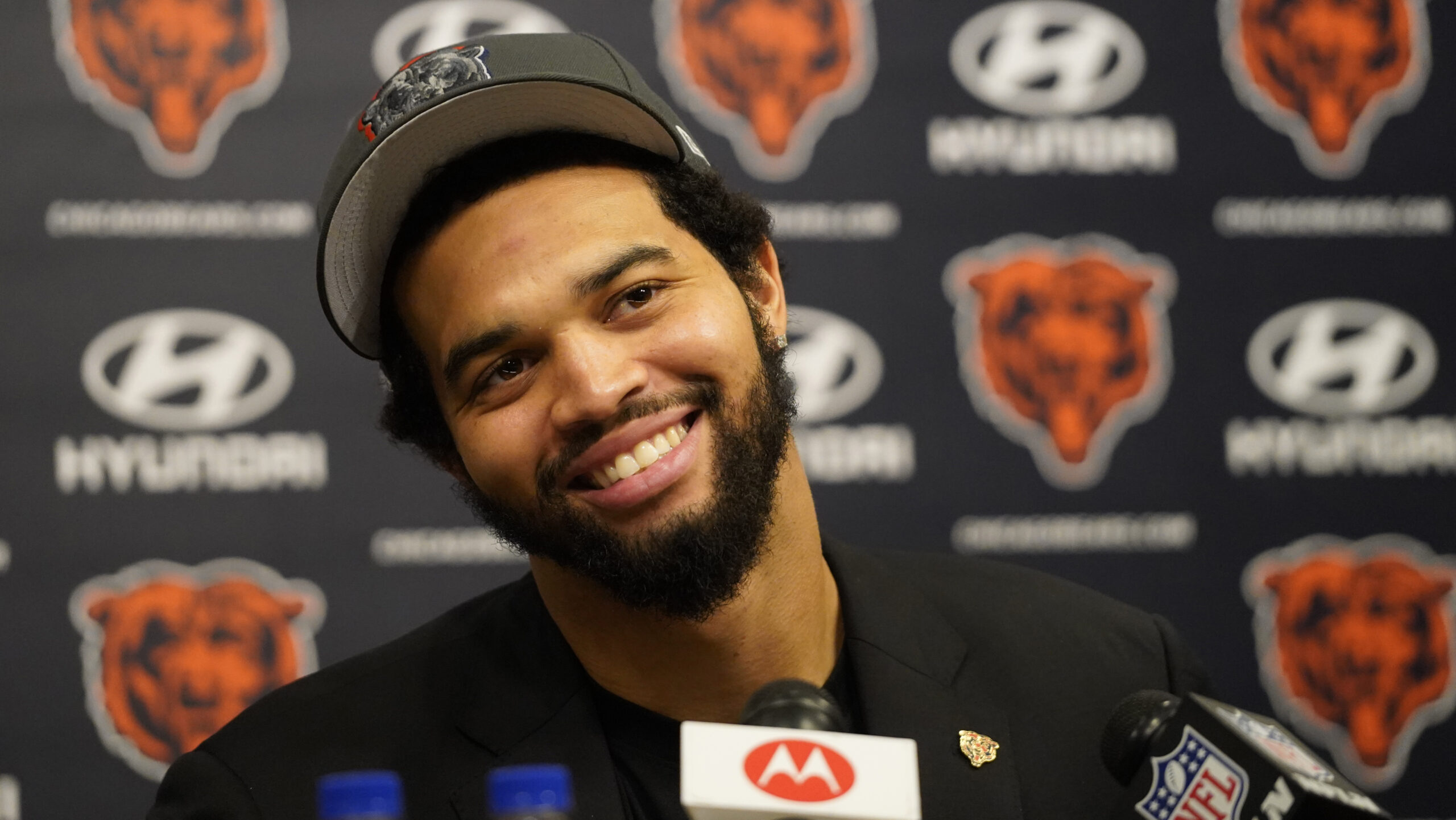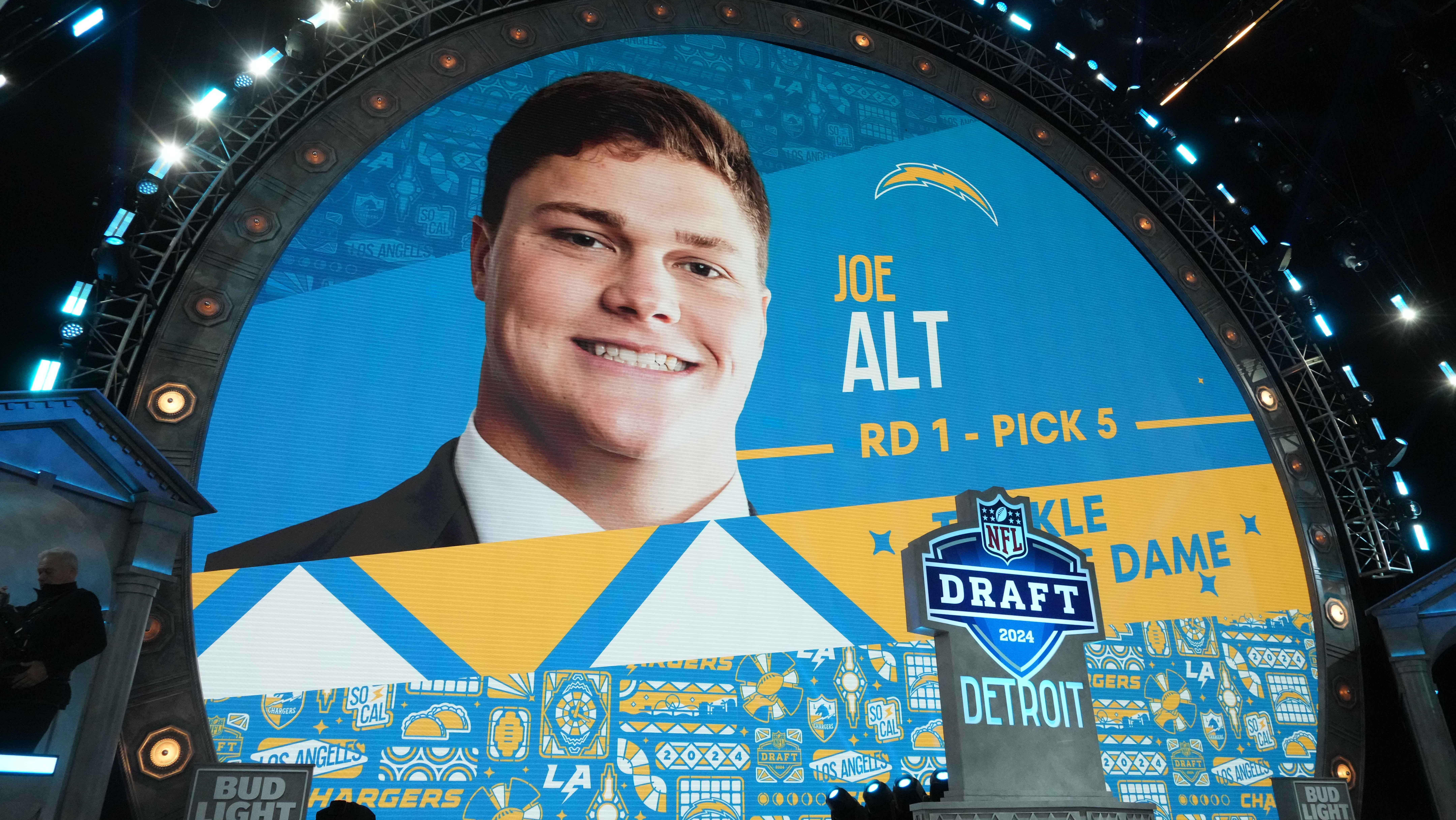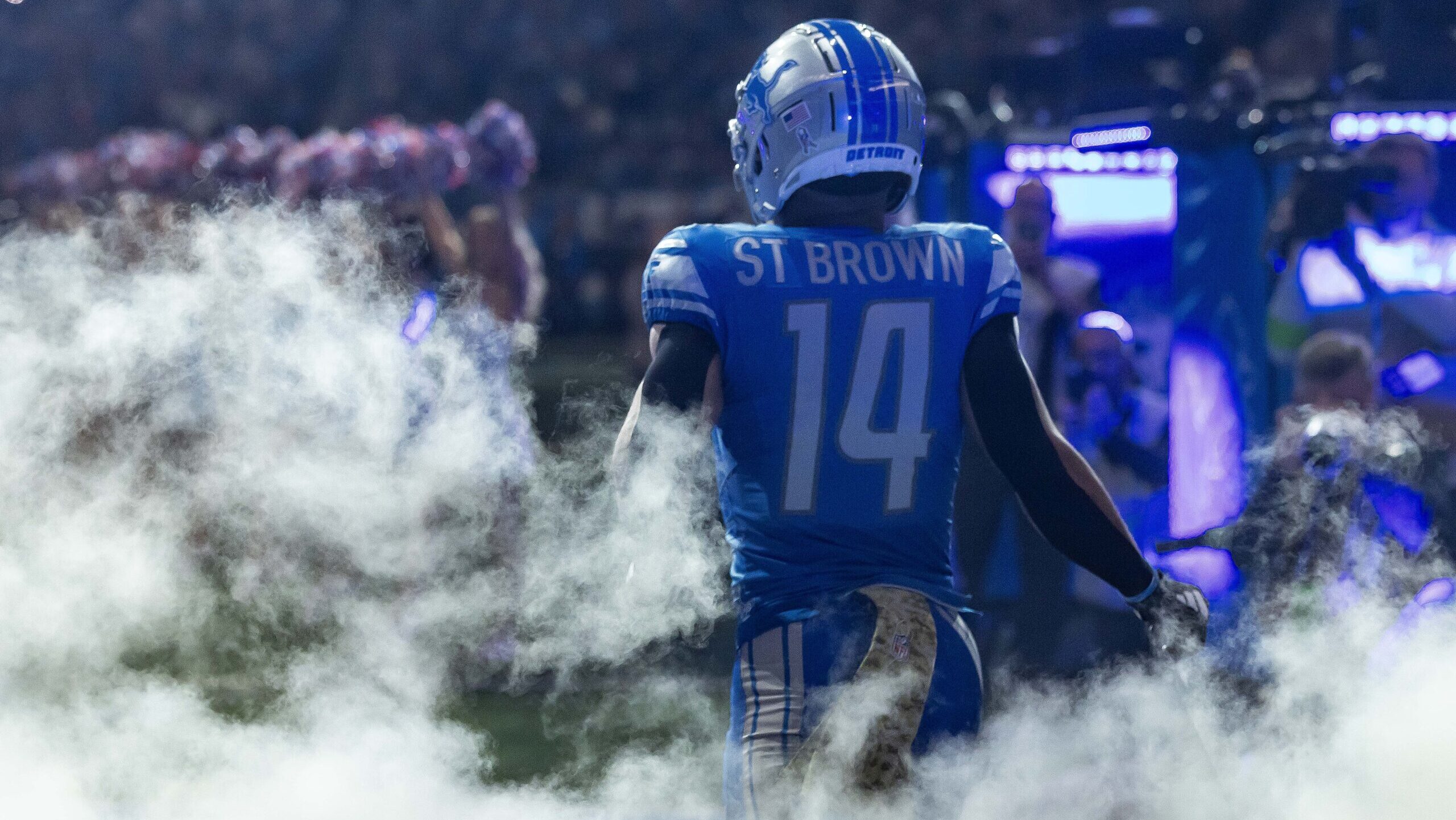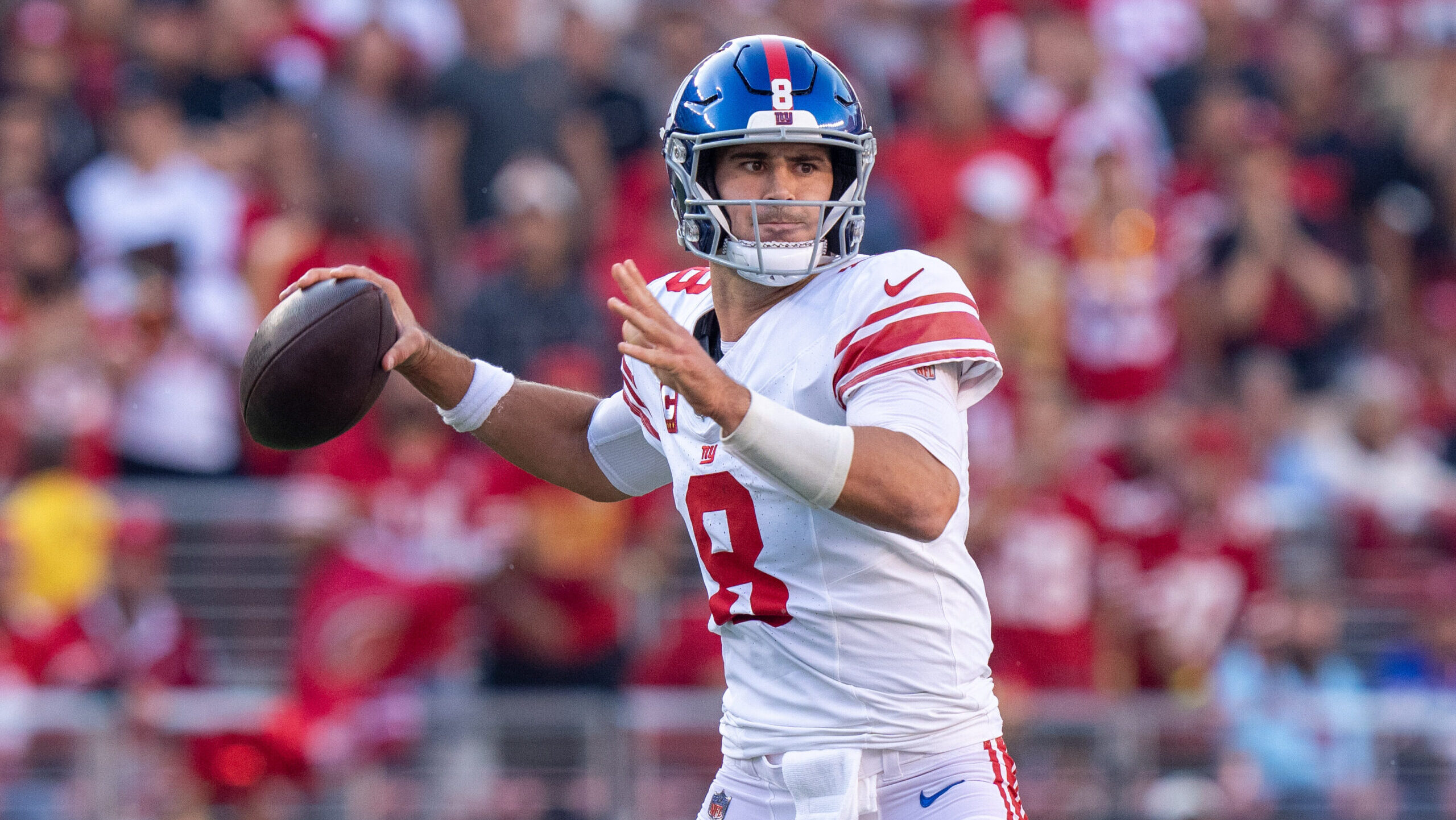Analysis
7/19/23
8 min read
What's Next for Franchise-Tagged RBs Without Long-Term Deals?
So now what?
That is the question all of us, not just Saquon Barkley, Josh Jacobs and Tony Pollard, should be asking in light of all three franchise-tagged running backs failing to sign long-term deals.
With the deadline for signing a long-term agreement gone, that ship has sailed until next offseason. That doesn’t mean these players have to play this year for the one-year, $10.1 million tag amount.
Pollard already signed his tender, so he is locked in. However, Barkley and Jacobs can negotiate a more favorable one-year arrangement. That could be more money this season or a clause preventing the team from tagging the player next offseason, which is a strong possibility for both players.
So, how do they create the leverage necessary to get their respective teams — the New York Giants and Las Vegas Raiders — to increase the one-year number or agree not to tag them in 2024?
The answer is withholding services.
>> READ: Making Sense of Franchise Tag Decisions
Why Players Hold Out
It is the best leverage for NFL players who are under contract or franchise-tagged.
Neither the Giants nor the Raiders want to play without Barkley and Jacobs. The Giants are looking to build on coach Brian Daboll’s outstanding debut campaign. The last thing they want is to start the season without their star running back.
They want him on the field because of what he brings to the offense and to avoid the negativity from his absence. Plus, have you seen Giants quarterback Daniel Jones’ stats with and without Barkley in the lineup? They are staggering.
The same can be said for the Raiders, where coach Josh McDaniels should be on the hot seat after a disappointing 2022 season. Does he want new quarterback Jimmy Garoppolo, coming off foot surgery, to start the season without the guy who won the NFL rushing title last year? I highly doubt it.
There are two ways to go about it. Since they are not under contract, they can decline to sign the tender or report until the team plays a game or two unless the organization consents to one or both of their demands. The downside is they miss out on $561K for every game missed.
The other approach is to sign the tender before the first game. Then, coincidentally, both ball carriers experience some tightness in their hamstring or lower back and miss games. That way, they still get their money.
I asked NFLPA President JC Tretter recently on the Ross Tucker Football Podcast about the idea of players faking injuries, and he had an interesting response:
"You need to try to create as much leverage as you possibly can in any situation," Tretter said. "And that's the tough thing with the franchise tag or being restricted in movement is it decreases your leverage. But then you have to find creative ways to build leverage elsewhere. And I think we've seen issues. Now, I don't think anybody would ever say they were fake injuries, but we've seen players who didn't want to be where they currently have injuries that made them unable to practice and play.
"But you're not able to get fined, and you're not able to be punished for not reporting. So, there are issues like that. I don't think I'm allowed to ever recommend that, at least publicly. But I think each player needs to find a way to build up leverage to try to get a fair deal. And that's really what all these guys are looking for, is to be compensated fairly."
Many of you would find that unethical or morally unscrupulous, and I understand that. Frankly, I would feel the same way if I never played in the NFL. But I did, so I don’t.
It's 'Just Business'
Every NFL player is keenly aware teams will do whatever they possibly can to get out of paying players any dollar amount. After all, it’s "just business."
I have a close friend whose knee swelled up during training camp, so he had to sit out for a few weeks. After he rehabbed it, the team told him they were encouraged by his progress and felt with a good week of practice, he could be back in the starting lineup for the opener.
He practiced great all week, only to get cut the day before the first game. The team lied to him and only told him he was starting so they could get him on film as “healthy” before releasing him without paying him a dime.
NFL teams can’t cut an injured player, so they encouraged him to practice as evidence he was “healthy.” Not surprisingly, the next three teams he visited told him he had a debilitating condition in his knee and would not pass him on a physical. His career was over.
Heck, I have multiple personal stories that speak to some of the things teams are willing to do. In 2004, while playing for the Buffalo Bills, my lower back was bothering me late in the season. After an MRI, the team told me there was a bulging disc in my back.
I started the last four games after that at left guard, and during my exit physical, I was told, “We need to do something about your herniated disc this offseason.”
"I thought you just said it was bulging?" I asked.
"That’s just semantics," I was told.
I eventually had to have back surgery in April. I rehabbed to get back for the start of camp and partially tore my hamstring on the first day. Upon returning, I sprained my neck. Despite my stellar 2004 season, I could tell I was on the roster bubble due to these injuries, so I took a shot of Toradol before the final preseason game. I wanted to go out and prove I should still be on the team.
Right before kickoff, my offensive line coach told me they wouldn’t play me that night. The team had already decided to move on and was trying to trade me. That would’ve been nice to know before I took the Toradol shot. The team cut me a couple of days later, one year into a three-year contract extension. My best year in the NFL, mind you.
Even my career-ending neck injury is a great example of the lengths teams go to save money. I herniated my C5/C6 in my neck against the Ravens in the 2007 preseason.
I asked the spinal surgeon for Washington what he thought, and he said, "I think you are 28 and went to Princeton and should get a real job," meaning move on from football.
That said, he listed the injury as a 12-16 week injury with the idea that if I had neck surgery, I could return in 12 weeks.
I decided to take his advice and move on and began rehabbing my neck without immediate surgery. Sure enough, exactly 12 weeks later, after a rehab session, I was told by the same doctor the team wanted him to clear me so they could get out of paying me for the final four weeks.
"I’ll file a grievance immediately, and I will win," I told him.
He wisely didn’t clear me.
I have dozens of stories like this. Every player does.
That’s why you won’t find a single current or former NFL player who has a problem with any player leveraging a situation like Jalen Ramsey did. While with the Jacksonville Jaguars in 2019, Ramsey had a “back issue” and missed several games until he got traded to the Los Angeles Rams.
Because Barkley and Jacobs aren’t under contract, their representatives would have to let it be known during contract talks there is a decent chance they’d have a “sore back” for a few weeks upon return unless they get what they want. Or else, the players would need to show up, sign the tender, and then have a “tight hamstring” until the team agrees not to tag them again.
Whether Barkley or Jacobs tries something like this is uncertain.
As pretty much every former and current player could tell you, if roles were reversed, the team certainly would.
Ross Tucker is a former NFL offensive lineman who played seven seasons for the Cowboys, Bills, Patriots and Washington after graduating from Princeton University in 2001. He works as a color commentator for both CBS Sports and Westwood One in addition to hosting a number of podcasts, including the popular Ross Tucker Football Podcast. You can follow him on Twitter @RossTuckerNFL.








